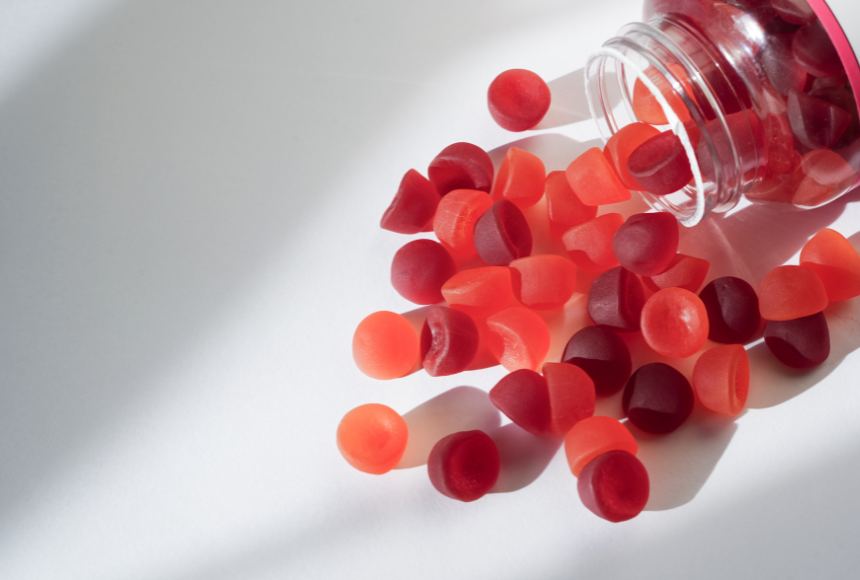Top Benefits of Organic Foods
for Babies & Big Kids
by: Tiny Sprouts Foods
With endless mixed information available, it is easy to understand why many parents are confused as to whether they should pay the premium for organic products for their children. These days children are not only exposed to chemicals in food, but also increased air pollution, chemicals in everyday household products, and more. Limiting exposure to chemicals is good practice, especially in the early years as it impacts their health and wellbeing into their adult years. While we cannot easily control the air we breathe, we can control the foods we purchase and products we use on our bodies and in our homes. Choosing organic foods is one of many ways to reduce overall chemical exposure for your little one. Read on to find out more.
In this article, we will cover the following:
- What defines an organic food?
- What are the benefits of organic food?
- How else can I support my child?
What defines organic?

As directly defined from the USDA, a food product is certified organic if it is grown and processed according to the following federal guidelines9:
- Soil quality – Grown on soil that has had no synthetic fertilizers and pesticides applied for 3 years prior to harvest. Some farms use sewage sludge as fertilizer, so soil quality is important!
- Pest & weed control – Crops are not sprayed with synthetic fertilizers, pesticides and chemicals as they are grown.
- Animal farming practices - Animals are raised in living conditions accommodating their natural behaviors (like the ability to graze on pasture), fed 100% organic feed and forage, and not administered antibiotics or hormones.
- Use of additives – Foods do not contain artificial preservatives, colors, or flavors and require that 95% their ingredients are organic.
Organic producers rely on the most natural farming/food producing methods possible and deliver food that contain zero or trace amounts of chemicals, genetically modified (GMO), hormones/antibiotics and artificial ingredients9.
The FDA requires food manufacturers to become certified organic by submitting their farming practices and/or ingredient specifications to an external certification organization, so you can be rest-assured an organic product you purchase has been regulated. Its as natural as you can get unless you are growing and making your own food!
At Tiny Sprouts Foods, we take pride in ensuring that we are delivering the safest and most healthy food possible for your little ones. We are USDA certified organic through one of the largest certifying bodies in the USA (Oregon Tilth), which means we are also non-GMO, and we test every batch of product we produce. You can learn more about our Ingredient Standards here: https://tinysproutsfoods.com/OurDifference
What are the benefits of organic foods for my little one?
We are all subject to unavoidable toxins everyday as they are in the air we breathe, the products we use, and even in some of our furniture! While conventional foods contain ‘safe’ levels of chemicals (limits defined safe by the FDA), these ‘safe’ levels combined with the other exposures we are exposed to is where some of the buildup can become harmful.
Eating organic foods means you are reducing your overall intake of chemicals, GMOs, hormones, antibiotics, and artificial ingredients from food products. There are many benefits associated with this reduction:

- Many of these items are known carcinogens and have other adverse affects on the body when consumed in large quantities1. Some studies even suggest a reduction in cancer risk with organic food consumption2. While some health officials say that non-organic products contain safe levels of chemicals and toxic metals, there are no studies confirming this is true for babies and young children. An interesting study that did involve children showed that consumption of artificial sweeteners through food correlated with a decreased attention span and higher levels of impulsivity and hyperactivity3.
- Food additives that have FDA ‘GRAS’ (Generally Recognized As Safe) have been studied for toxic effects but lack support for their effect on metabolic regulation4.
- Ever since these harmful chemicals and additives have been introduced into food and farming techniques, the incidence of allergies, autoimmune, asthma and obesity have been on the rise in children. Some studies show a reduced risk of obesity with organic food consumption5.
How else can I support my child?
- Read and understand labels – Try your best to avoid GMO foods, chemicals, artificial colors, flavors or preservatives. Know what you are consuming and make informed choices.
- Use chemical free grooming products – Search for baby & bath products that don’t contain parabens, SLS, phenoxyethanol, phthalates and artificial fragrances.
- Purchase non-toxic household cleaning products – There can be many harmful chemicals and toxins in cleaning products... some are full of known carcinogens and have been linked to other diseases like dementia and Alzheimer’s later in life. You can always use vinegar & water, or hydrogen peroxide as a safe cleaning solution. Or there are now many safer cleaning products readily available. Check the ratings of the products you use on the Environmental Working Group (EWG) website: https://www.ewg.org/guides/. This is an excellent resource that will help you make better choices for you and your family in the everyday household products you use.
- And there is more! There is more you can do to reduce chemical exposure to your little one to keep them healthy and set them up for a life of great health. Check out the EWG’s Guide to Healthy Children: https://www.ewg.org/research/ewgs-guide-healthy-childcare
At Tiny Sprouts Foods we believe that every family should make informed decisions about what diet and lifestyle works best for them. We chose to go organic for our products because our mission is to deliver the safest possible foods to help develop and keep you little ones healthy. You can learn more about our exciting range of Organic Superseed Boosters here.


Tiny Sprouts Foods is a children's nutrition company focused on producing convenient, nutrient-rich products that offer functional health benefits to the developing child. They are committed to making every bite count through their debut range of Organic Superseed BoostersTM, which can easily be added to any food to boost nutritional content, support a child’s daily health needs, and give parents the peace of mind they deserve. Learn more at https://www.tinysproutsfoods.com.
Disclaimer: The information contained in this blog is based on the experience of the author and science-based research. It is not intended to replace medical advice or diagnosis from a physician or other medical provider. This blog is not intended as a substitute for a consultation with a physician or other healthcare provider. The author is not responsible for any adverse effects or consequences resulting from the use of any suggestions discussed in this blog. It is important to talk to your doctor or your child’s pediatrician prior to starting any new medications or supplements.
Sources:
- https://www.ncbi.nlm.nih.gov/pmc/articles/PMC4947579/
- https://www.ncbi.nlm.nih.gov/pmc/articles/PMC6583612/
- https://pubmed.ncbi.nlm.nih.gov/23590704/
- https://www.ncbi.nlm.nih.gov/pmc/articles/PMC4101898/
- https://pubmed.ncbi.nlm.nih.gov/28166859/
- https://pubmed.ncbi.nlm.nih.gov/24968103/
- https://www.mayoclinic.org/healthy-lifestyle/nutrition-and-healthy-eating/in-depth/organic-food/art-20043880
- http://www.fao.org/organicag/oa-faq/oa-faq6/en/
- https://www.usda.gov/media/blog/2012/03/22/organic-101-what-usda-organic-label-means#:~:text=Produce%20can%20be%20called%20organic,most%20synthetic%20fertilizers%20and%20pesticides.





